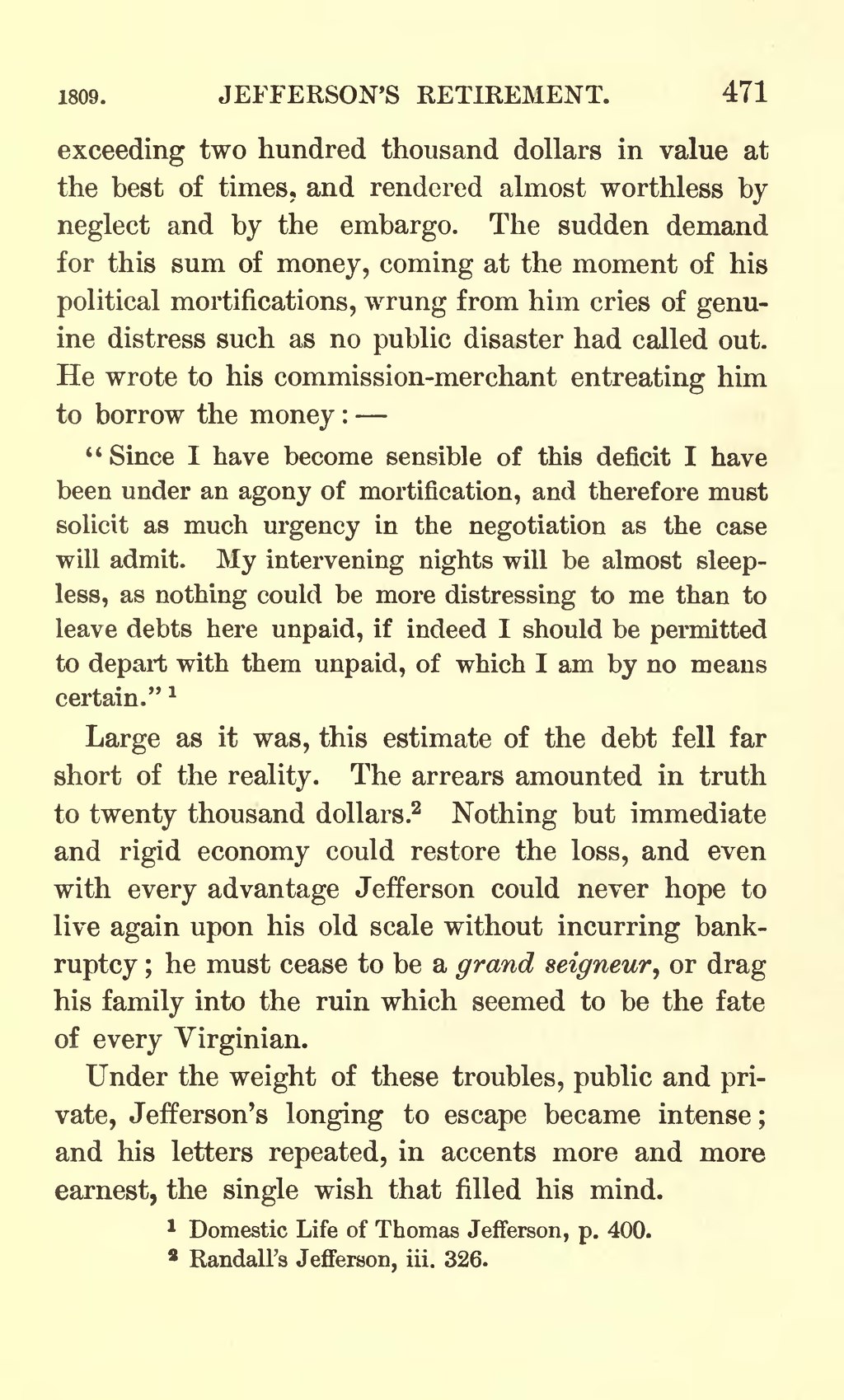exceeding two hundred thousand dollars in value at the best of times, and rendered almost worthless by neglect and by the embargo. The sudden demand for this sum of money, coming at the moment of his political mortifications, wrung from him cries of genuine distress such as no public disaster had called out. He wrote to his commission-merchant entreating him to borrow the money:—
- "Since I have become sensible of this deficit I have been under an agony of mortification, and therefore must solicit as much urgency in the negotiation as the case will admit. My intervening nights will be almost sleepless, as nothing could be more distressing to me than to leave debts here unpaid, if indeed I should be permitted to depart with them unpaid, of which I am by no means certain."[1]
Large as it was, this estimate of the debt fell far short of the reality. The arrears amounted in truth to twenty thousand dollars.[2] Nothing but immediate and rigid economy could restore the loss, and even with every advantage Jefferson could never hope to live again upon his old scale without incurring bankruptcy; he must cease to be a grand seigneur, or drag his family into the ruin which seemed to be the fate of every Virginian.
Under the weight of these troubles, public and private, Jefferson's longing to escape became intense; and his letters repeated, in accents more and more earnest, the single wish that filled his mind.
